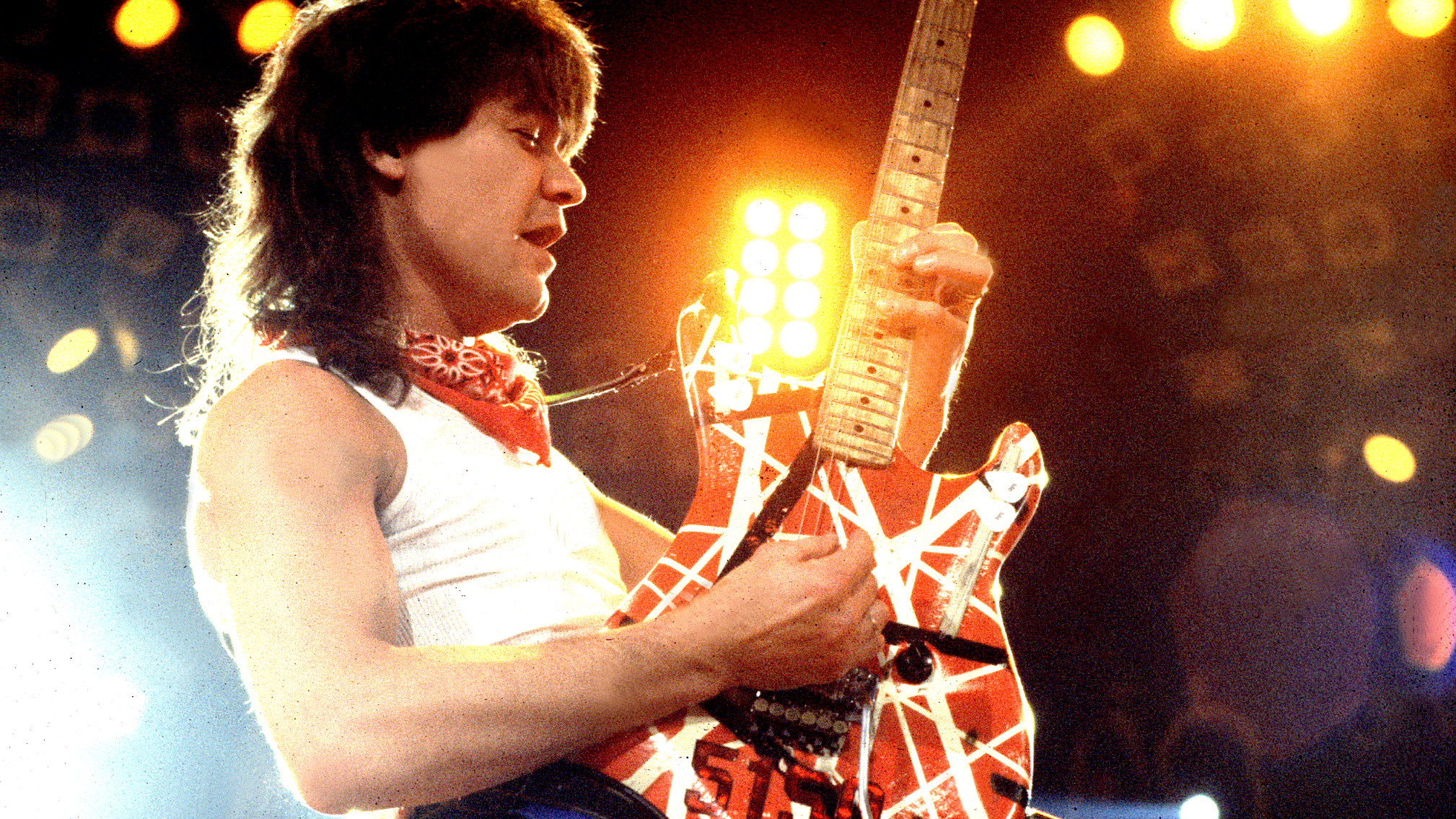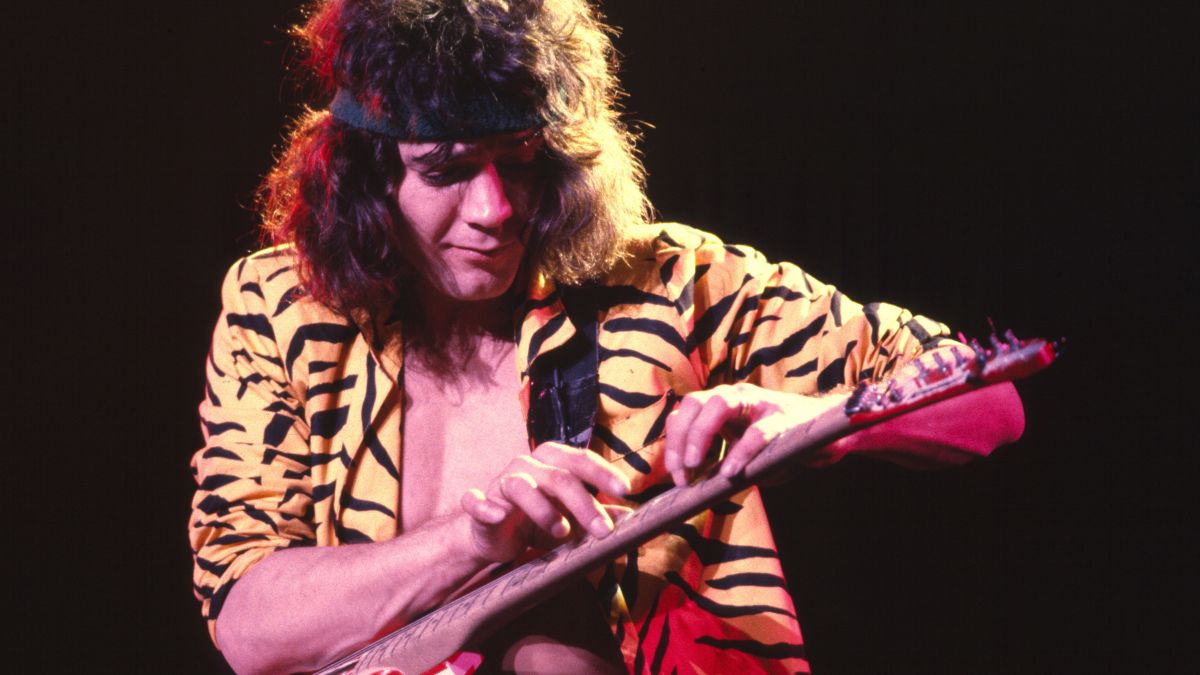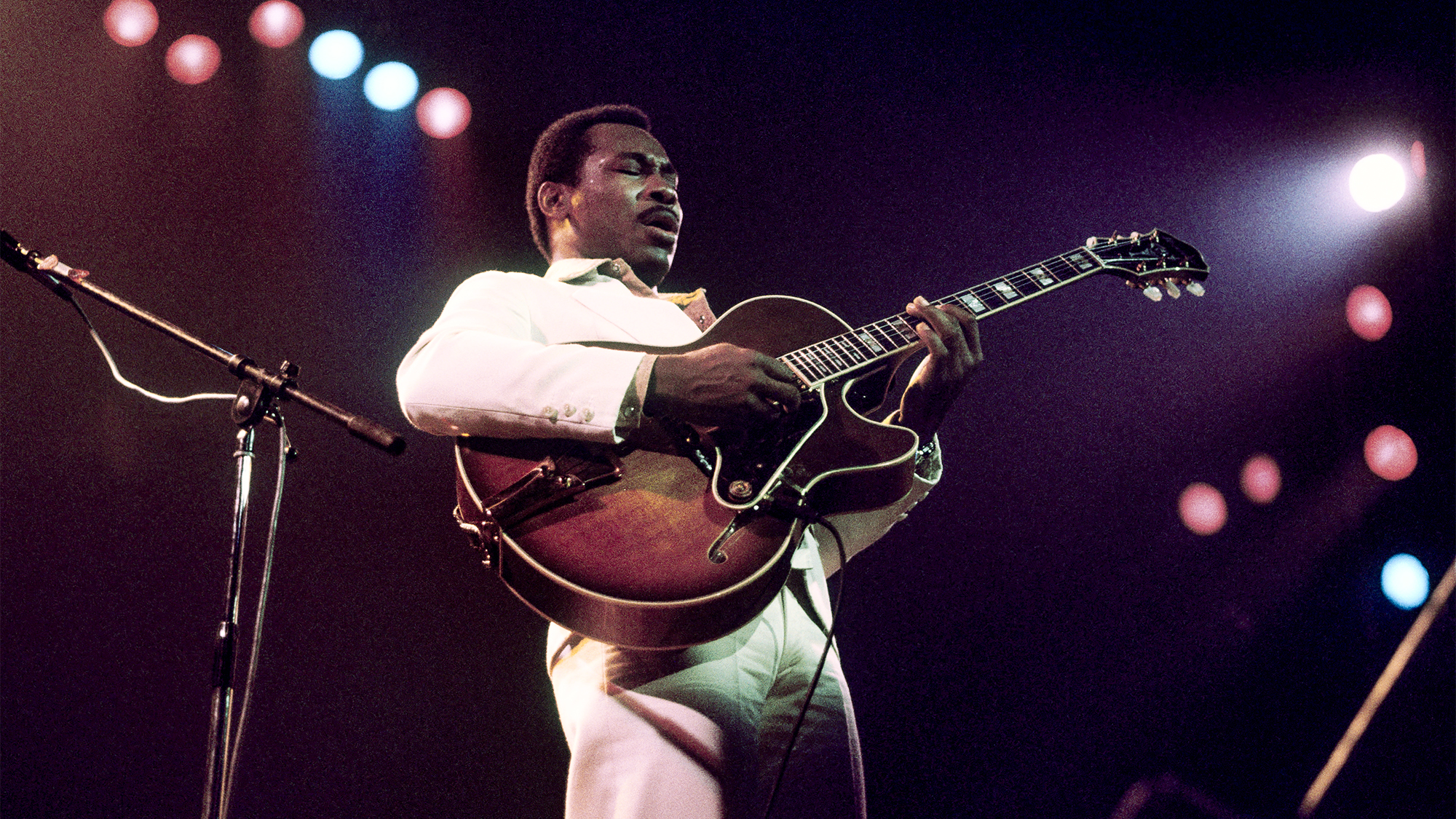“It always comes through me. I'm the spark plug and the engine.” Eddie Van Halen talks tapping, “Eruption” — and why the weight of the band rested on his shoulders
The last in a six-part series dedicated to the band’s early years is told through their voices, along with Van Halen producer Ted Templeman

All the latest guitar news, interviews, lessons, reviews, deals and more, direct to your inbox!
You are now subscribed
Your newsletter sign-up was successful
British filmmaker Simon Adkin has released another Van Halen mini-documentary in his ongoing YouTube series. At its heart is the story of Eddie Van Halen’s tapping origins and the writing of “Eruption.”
Like Adkin’s exhaustively produced mini-doc on EVH’s penchant for modding guitars — which led to the creation of his legendary Frankenstein Super-Strat — the latest film is told in the band’s words via interviews charting across several decades.
The band’s early producer Ted Templeman — who was behind the desk for all of Van Halen's records prior to 1986’s 5150 — features prominently, and says he only signed the band to Warner Bros. because of Eddie’s talents.
“I didn't care about anybody else,” he’s heard saying. “I just wanted that genius to be recognized by the world.”
However, he discovered the band was “a cohesive unit” more than simply a platform for Eddie to shred.
For that matter, Eddie himself can be heard discussing the negative side of being their focal point.
“We all piece it together," he says. "Al's great at arranging. It's a group thing, but without me, it wouldn't be.
All the latest guitar news, interviews, lessons, reviews, deals and more, direct to your inbox!
“It always comes through me. I'm the spark plug and the engine, so it is kind of a burden, but it's a challenge at the same time.

Alex Van Halen says his brother put that weight on himself after presenting the band with an early version of "Running With the Devil."
"That moment I heard that, I said, 'Okay, Ed, you're writing all the songs,'" the drummer recalls. "We can't compete with that.”
Alex adds that the band’s sound, as unique as it was due to Eddie's approach to the guitar, often became a point of conflict when working with those outside of the group.
“Ed used to call it sound chasing," he says. "'Our instrument is our voice, this is how we connect with the world.'
"Ed and I had a running battle with every engineer and producer just to get it where we wanted it to go.”
Eddie changed the guitar music landscape forever with his tapping techniques on “Eruption,” the second track from the band's 1978 self-titled debut. By his admission, it wasn’t a technique he invented — Harvey Mandel has recently claimed he deserves some credit for his early innovations — but it was one he put into overdrive. Had he not seen Led Zeppelin live in August 1971, Ed's signature sound may have been very different.

At one point during the show, he can be heard explaining that he saw Jimmy Page play a trill with his left hand as he raised his right hand high above his head, drawing a huge cheer from the crowd.
Ed said he realized, “Wait a minute. I can use my finger as a capo,” allowing his right hand to become, as he put it, “an extension” of his fretting hand.
As the documentary explains, players had been tapping on fretboards for years before Eddie made it popular, as illustrated by a 1965 clip in the film that shows Vittorio Camardese tapping on a classical guitar.
Steve Hackett and Ace Frehley, who were both doing it before him, are also briefly featured, and Ed acknowledges that he also took inspiration from Brian May, who in turn had been inspired by Rocky Athas.
Where Eddie's evolution of the technique came in was its application, and "Eruption" was the jewel in his crown.
“I'm sure someone else has done that before me,” Eddie says, it's just they didn't think of applying it to rock and roll the way I did…
"I never really heard anyone do what I did.”
The song wasn't intended to appear on the Van Halen debut. It started life as something Eddie would play around with at soundcheck. Templeman was responsible for its promotion.
“I think of myself as a lighting man when I produce records,” Templeman divulges. “I try to make people look good; I just wanted the world to see Ed play.”
I'm sure someone else has done that before me, it's just they didn't think of applying it to rock n' roll the way I did
Eddie Van Halen
Clocking in at just over 16 minutes, the documentary is tireless and honest in its account of the history surrounding the change-making song. At one point Slash says “Eddie changed the face of the guitar” — and its legacy is pondered over by the likes of Steve Vai and Zakk Wylde in its latter stages.
The documentary's release comes after hours of unseen B-roll footage — taken from a canceled Van Halen documentary captured during the band’s heyday — was uploaded to YouTube. In the absence of officially licensed films, these become precious watches for the Van Halen fanbase. Adkins wants to help fill that void.
Sammy Hagar, meanwhile, has released a song he claims to have been co-written by EVH in a dream, and says Eddie stopped writing in his later years because he was “dried up.”
A freelance writer with a penchant for music that gets weird, Phil is a regular contributor to Prog, Guitar World, and Total Guitar magazines and is especially keen on shining a light on unknown artists. Outside of the journalism realm, you can find him writing angular riffs in progressive metal band, Prognosis, in which he slings an 8-string Strandberg Boden Original, churning that low string through a variety of tunings. He's also a published author and is currently penning his debut novel which chucks fantasy, mythology and humanity into a great big melting pot.


